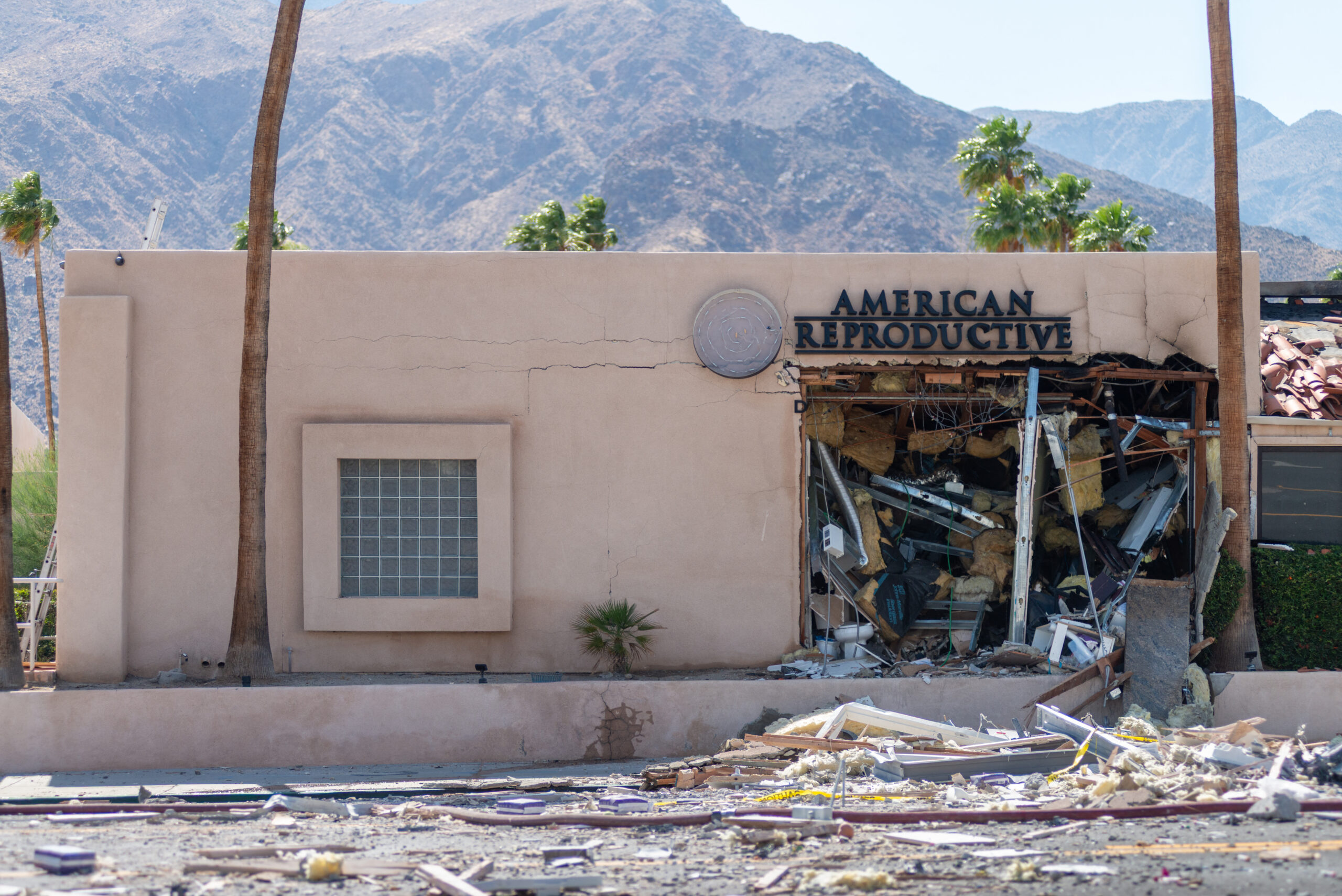On Saturday, a car exploded outside a fertility clinic in Palm Springs, California, killing the driver and injuring four others. The blast occurred in the parking lot of American Reproductive Centers, a well-known fertility treatment facility.
According to NBC News, authorities later identified the suspect as Guy Edward Bartkus, a 25-year-old man who is believed to have detonated the bomb himself. His death was the only fatality in the incident.
While the motive has not been officially confirmed, NBC News reports that two senior law enforcement officials close to the investigation say authorities are examining anti-natalist beliefs as a possible motive. Investigators are reportedly reviewing the suspect’s social media activity and a 30-minute audio recording in which he allegedly espouses anti-natalist ideology.
What Is Anti-Natalism?
Anti-natalism is a philosophical belief that views procreation as morally wrong. Adherents argue that bringing new life into the world, without consent, is ethically problematic. They believe that’s due to the inevitable suffering, illness, and death all humans experience. A foundational text in the anti-natalist movement is David Benatar’s, “Better to Never Have Been: The Harm of Coming Into Existence.” In it, Benatar posits that although those who never exist miss out on life’s pleasures, they are also spared its suffering.
It’s important to note that the vast majority of anti-natalists engage with this ideology through academic or ethical discourse, not violence. According to TODAY.com, psychology professor Kurt Gray of the University of North Carolina at Chapel Hill explains that many anti-natalists view their position as rooted in compassion and a desire to prevent harm.
“Moral decisions are based on preventing harm and protecting ourselves or society,” Gray said. “Antinatalists care about that, but if there are no children left … there is no one to protect.”
What Do Anti-Natalists Believe?
While beliefs can vary, some anti-natalists advocate for the eventual voluntary extinction of the human race to prevent future suffering. Others simply oppose having children themselves. It’s a philosophical position not a call to violence. The views of any one individual do not reflect those of the broader community.
Are There Anti-Natalist Policies?
Some have described historical population control measures—such as China’s one-child policy—as anti-natalist in nature. However, these government-enforced policies are more accurately classified as population control, rather than philosophical anti-natalism.
According to the National Library of Medicine, China’s one-child policy (1979–2015) restricted many families to a single child. This was done through a system of financial incentives, social pressure, and in some cases, penalties. Other reported examples, include Uzbekistan’s alleged forced sterilization practices. However, policies like these have also been criticized as state overreach rather than expressions of ideological anti-natalism.
Fertility Patients Speak Out
Although the attack is still under investigation, the incident has already triggered fear among fertility patients. Many of are now asking: Are our embryos safe?
The explosion caused no structural damage to the American Reproductive Centers building. However, the proximity alone has been unsettling for people. Especially those who have entrusted fertility clinics with their hopes, dreams, and biological materials.
As one IVF patient told NBC News, “When I froze my embryos, I thought they’d be safe—safer than I could ever promise them myself. Now I’m not so sure.”
